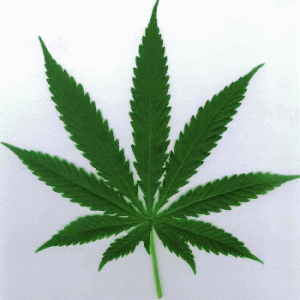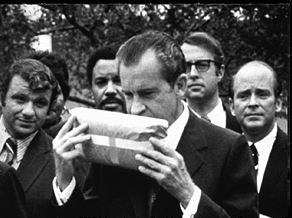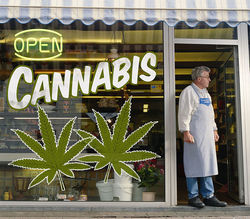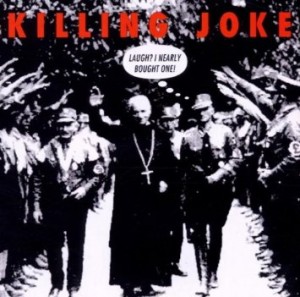Legalise Medical Cannabis and all drugs?….it’s a no brainer, just look at the facts!

Casualties of war
I’ve been a regular cannabis user since the age of 16. It’s always been my drug of choice before and after MS and I’m certain it’s infusions have served me well. As early as the ancient Greeks its medical properties were bestowed and many cultures feed on its healing ways. However ever since the International Opium Convention of 1925 its use has been demonised. Nearly 100 years later many societies still restrict its use recreationally or for medical purposes.
What’s got me onto this subject and coming out to the greater world in a sense, was a recent conversation I had with a woman called Jenny when doing a speech at the MS Society. Jenny, was in her mid to late fifties and resided in the suburbs. She has lived with the disease for many years, walking unsteadily with a stick, and was fearful of ending up in a wheelchair.
As with most MS’ers we talked about symptoms and treatments – Nothing seemed to work for her and she too suffered from nerve and muscle pain. I asked her, had she tried Marijuana? Her reply like many others before, was delivered with both resignation and sadness ‘I wouldn’t know where to get it from, but I would love to try some, to see if it helps’.
Her answer highlighted the absurdity of the current policy on drugs and how it has failed people living with a chronic disease, but also how it’s let down the country, careering down a path that is not cost effective and on a road to nowhere.
The birds have flown
Currently Cannabis and all non prescribed drugs, besides over the counter medicines are illegal in the UK. Although the laws on cannabis have relaxed in recent years, there is still a high degree of misinformation on the subject. What is a fact though, is my weekly purchase, a 3g bag of weed, which helps me to relax and gives relief from pain and spasms due to my multiple sclerosis, leaves me open to arrest and a criminal record.
I’m sure any police officer would be embarrassed to pull me in my wheelchair, confiscate my pot and sanction me for it but that’s what faces people, like myself and Jenny, who seek pain relief through cannabis, trapped in the phoney ‘War on drugs’, which ultimately benefits only its owners, big business and the drug dealers.
President Nixon’s campaign, coined in the 70’s, later reinforced by Ronald Reagan and others has had little impact in cutting the flow of drugs to the US or Western Europe – it’s been a total failure.
The recent re-arrest of El-chapo Guzman, head of the Sinaloa cartel in Mexico, helps illustrate its futility. In his book Murder City – a brutal insight into life in Ciudad Juarez and the global drug market, Charles Bowden, estimated that the Sinaloa cartels annual income was a staggering $12 billion dollars, largely made through the smuggling of marijuana and cocaine to the USA.
The mind boggles when you digest the figures. Guzman would have needed a large warehouse to store the 144 standard pallets, bending under the weight of 120 million $100 bills or more likely a friendly bank, like HSBC to help him launder the money. Either way, the money is tiny in context, representing less than 3% of the global drug market – worth an estimated $435 billion per annum, equivalent to Belgium’s GDP, the 27th biggest in the world.
In reverse many argue that it’s taken dangerous people off the streets and kept us safe, but the figures tell a different story. There are over 2.25 million people incarcerated in the US, by far the worlds biggest population and it takes an industry in itself to cater for them. US taxpayers absorb an astonishing $39 billion on the judiciary/prison costs and a further $60 billion on the police, half of whose customers are small time drug offenders who should not be in gaol in the first place.
It’s a system that acts equally as a sausage machine and gravy boat, churning out a never ending supply of poor people, often black, with little opportunity, choice or independence for the former, and profits for big business coming with the later. Back home, we echo a similar trait, with the highest rate of jailing’s in Western Europe, many inside for acquisitive crime related to drugs, costing the economy over £15 billion a year. It is a figure we can ill afford.
Welcome to the revolution
In recent years though the times have started to change, and a revolution of sorts has started to occur around the world, especially in the field of medical marijuana, with the US ironically leading the way. Although possession is still a federal felony, 24 US states permit the use of the drug, actively encouraging it in places with sale by dispensaries.
Colorado and 3 others have even taken a step further, legalising all together, helping generate $125 million in taxation per annum. Many more are likely to follow buoyed by the fiscal stimulus and savings on the judicial system and police.
In Europe, Germany has decrimnalised cannabis all together, and many others allow its use for both medical and recreational purposes. Portugal and Switzerland have taken a step further, legalising all drugs including heroin and treating their use as a health and not a criminal problem. This has had beneficial effects to their society, seeing dramatic reductions in deaths, HIV, crime, and re-engaging addicts in a positive manner.
We could learn a lot from our European partners. The UK has the highest rate of class A drug use in Europe, with over 300k people dependent on heroin/crack. The consequences of treading water, continues to cost us both socially and economically. Deaths from heroin misuse have risen dramatically in recent years, approaching 1000 per annum, each of which is a tragedy in itself. No parent should have to find their child dead, with a bloodied needle close to their body as faced by my brother Charlie last year.
Enemy at the gate
Unsurprisingly there are still many opposed to legalisation and any form of relaxation of the drug laws. Much is based on ignorance or the fear factor stirred by a right wing press and politicians, scared to take the next step, in case it upsets the status quo,
Essentially though, there is no relationship between the punitiveness of a country’s drug laws and its rates of usage. Illicit drug use, has continued to rise since the ‘War on drugs’ was launched and tougher sanctions have clearly failed to make the problem disappear. If anything they have helped pour fuel onto the fire – increasing social deprivation, violent crime and epidemics like HIV, resulting in a huge weight on our health services and public purse.
A third of us, have taken an illegal drug in our lifetime, generally Cannabis, but most of us stop at that. Where it is legal or decriminalised, such as Holland or Portugal better education and understanding, has resulted in no evidence of increased usage or it acting as a ‘Gateway drug’ to other substances.
Perhaps the detractors have a point. It didn’t take me long to graduate from some excellent red leb, to a mind blowing trip in Devon – the cliff turned into a monster, before speeding like a jet at a Killing Joke gig, but you know what I survived it. Funnily enough so did my mates, who followed similar cultural and social trends, to become Professors, journalists, teachers and successful business people. Like most of us out there, we knew our limitations and never flew too close to the sun.
Sadly there are always casualties in a war and the instigators are quick to blame high grade skunk for mental health problems, but the argument is a smokescreen. The real issues are about people being denied jobs, homes, education, a life if you want, something to smile about when they wake up. Skunk isn’t responsible for a quarter of us living with mental health problem – society is, it’s, failed too many with their basic needs.
History shows prohibition does not work. The US government attempts to ban alcohol in the thirties, favoured only organised crime and could not be policed efficiently. The inevitable repeal, taxation and control mirrors what will become of ‘the war on drugs’, without the bitter consequences, alcohol, the worlds most calamitous drug brings.
The modern day Ironmasters
It’s doubtful though the UK government, will cede to any calls for legalisation any time soon. Despite the obvious benefits, rewards and calls from medical experts they have too much to lose. Trapped by blinkers and vested interests the wall has stood for to long, but the weight of Public opinion in favour of legalisation, could soon bring it crashing down.
Research has shown Cannabis to be a wonder drug for pain management and well being for many ailments including Cancer and the major drug companies are circling ahead of any legislation changes, keen to corner the market.
UK based GW Pharmaceuticals have already made over 20 patent applications to use cannabis or its components to treat a range of diseases from cancer to epilepsy and hold the license for Sativex, a cannabis prescription spray for MS sufferers. An MS society study from a sample size of 4k using the drug found that over 80% of respondents thought it was essential in their treatments, yet thousands like Jenny have no access to it, as many health authorities deem it to expensive.
Sativex contains all of the same compounds found in cannabis, and has the same effect, but that’s where the similarities stop. It’s daily prescribed dosage costs 400% more than my 3 spliffs a day, which keep me on the straight and narrow. It’s as though the job of distribution is swapping from organised crime to the drug companies. In my eyes there is little difference, everything is about their percentage or profit at the expense of the people.
Finally lets also not forget that Cannabis is a plant; indigenous to many countries, organically free, something we should all be entitled too if required. It can only serve to benefit us in the future as none of us are immune from disability, cancer or chronic pain. The healing potential of Cannabis offers a guiding light, not in 10 years time, but immediately for those who need it.
The future is green
The fight is on though and people are finally waking up and smelling the roses. The 24 US states, allowed to sell medical cannabis, have seen patients dropping prescription drugs like hot potatoes, denting drug company profits, taking control of their own lives. No longer is Cannabis seen as an underground economy in these areas but a wonder crop there to change people’s lives for the better.
It’s high time, we as a country threw off the shackles and embraced this revolution. Partial legalisation starting with medical cannabis would act as a yardstick for future legislation and go some way to ending the monopoly of the drug companies and their soaring profits.
It would also help break the stranglehold that organised crime has over the market. Over 70% of the Cannabis consumed in the UK is home grown, much of it generated from stolen electricity costing us the consumer another £200 million a year, raised from increased bills. On top of that much of what is grown has little quality control, is often treated with pesticides or chemicals and could in the long term end up doing more harm than good.
Perhaps there will be a mass migration by MS sufferers to county Durham, where the police authority have given the green light for people to grow the drug. It’s a beautiful part of the country, but for most of us it is not an option. I suspect most of us will sit and wait for some pragmatism on the subject, but I think people like Jenny have waited long enough.
My monthly supply of organically, hand watered Afghan Kusch arrives next week. I promised her I’d roll her a few joints and send them over. I’m sure her response will be positive. If she wants more to alleviate her pain, then I’ll be happy to oblige at no extra cost to her. In the eyes of the law that would make me a supplier but some times in life you’ve got to make a stand. When you live with chronic pain and its consequences believe me, that’s when – ‘We’re all in it together’.
.






